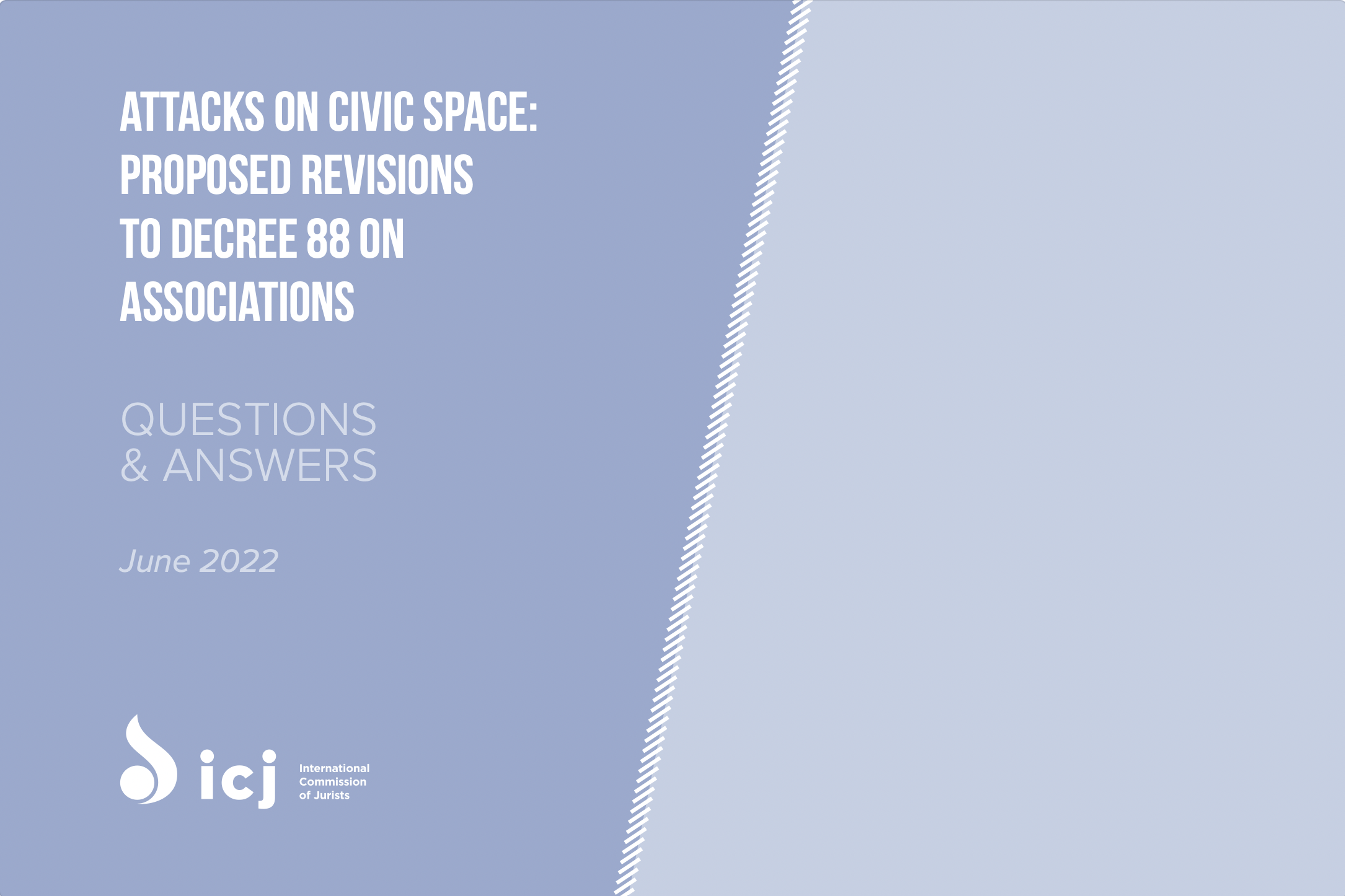A new question and answer briefing by the International Commission of Jurists (ICJ) examines leaked amendments to Decree 88-2011 on the organisation of associations and the ways in which the amendments would damage to the right to freedom of association, among other human rights, the rule of law, the separation of powers, the independence of the judiciary, rule of law and democracy in the country.
The amendments, leaked to civil society from a government source earlier this year, would limit the scope of the work that civil society organizations can lawfully undertake, curtail their access to financial support and, in so doing, weaken one of the last lines of defence against his one-man-rule.
The ICJ’s Q&A briefing answers the following questions:
- What are the proposed amendments to Decree 88?
- Would these amendments meet domestic and international standards on the right to freedom of association?
- What would be the impact of the amendments on the separation of powers, the independence of the judiciary, rule of law and on democracy and human rights more generally?
Civil society associations are the only remaining independent check on the President’s arbitrary one-man-rule following his 2022 decisions to dissolve parliament and the High Judicial Council. Their crucial role in holding the President to account for affronts to the rule of law and in ensuring diversity and ability to counter the homogeneity of the political space cannot be underestimated.
With a view to ensuring full compliance with international human rights law obligations and relevant standards, the ICJ calls on the Tunisian authorities to:
- Refrain from promulgating into law and implementing the proposed amendments to Decree 88;
- Ensure that any process to amend Decree 88 is based on public consultation and guarantees that:
-
- Associations are able to register swiftly via a self-declaratory notification procedure rather than a prior authorization procedure;
- The administrative body overseeing registration should be independent, impartial and fair;
- The procedures for refusing registration, suspension or dissolution of associations are prescribed by law, necessary in a democratic society in pursuit of a legitimate aim as defined in IHRL, and subject to independent and effective judicial review;
- Any discretionary powers the government might have in determining which acts or omissions might amount to ‘grave infraction’ necessitating suspension or dissolution of associations are removed, and, to that end, ensure that the law is clear, precise and in full compliance with the requirements of the principle of legality;
- Associations are able also to seek, receive and use funding and other resources from domestic, foreign, and international sources, and
- Ensure that associations are able to effectively play their watchdog role and act in defence of the rule of law and human rights, without political interference, intimidation, harassment or undue restrictions.
Download
This Q&A is available in English, Arabic, and French.
Contact
Said Benarbia, Director, ICJ Middle East and North Africa Programme; t: +41 22 979 3817, e: said.benarbia(at)icj(dot)org
Catriona Harris, Legal Adviser, ICJ Middle East and North Africa Programme; e: catriona.harris(at)icj(dot)org
Asser Khattab, Research and Communications Officer, ICJ Middle East and North Africa Programme; e: Asser.Khattab(at)icj(dot)org

